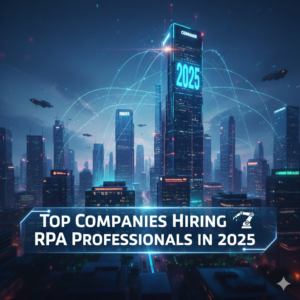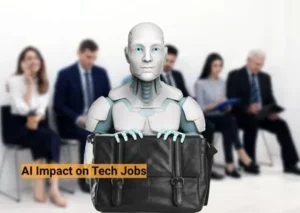As we look ahead to the next decade, the software development landscape is poised for significant transformation. The rapid pace of technological advancement promises not only to change how software is created but also to redefine the roles of those who build it. Here’s a glimpse into the future of software development and the trends that will shape the industry.
Automation and AI: The New Co-Developers
Artificial Intelligence (AI) and Machine Learning (ML) are no longer just buzzwords; they are becoming essential tools in the software development process. In the coming years, AI-driven tools will automate routine tasks, such as code generation and testing, freeing developers to focus on more complex and creative aspects of development. These tools will also play a crucial role in improving code quality, predicting potential issues, and optimizing software performance, ultimately leading to more efficient and reliable applications.
The Rise of Low-Code and No-Code Platforms
Imagine a world where creating software requires little to no coding expertise. That world is quickly becoming a reality with the rise of low-code and no-code platforms. These platforms empower non-developers to build functional applications, accelerating the pace of digital transformation across industries. By lowering the barrier to entry, they democratize software development, allowing more people to bring their ideas to life without needing a traditional developer’s skill set.
Cloud-Native Development: Building for the Future
The future of software is in the cloud. As cloud computing continues to evolve, more applications will be developed specifically for cloud environments. This shift towards cloud-native development will drive the adoption of microservices and serverless architectures, offering unparalleled scalability and flexibility. Developers will need to adapt to this new paradigm, focusing on building software that leverages the full potential of the cloud.
DevOps and CI/CD: Streamlining Software Delivery
The integration of DevOps practices is set to become even more widespread in the coming decade. By fostering closer collaboration between development and operations teams, DevOps enables faster and more reliable software delivery. Continuous Integration/Continuous Deployment (CI/CD) pipelines, enhanced by automation, will become the norm, ensuring that updates and new features can be rolled out rapidly without compromising quality.
Cybersecurity: A Growing Priority
With software becoming increasingly integral to our daily lives, the importance of cybersecurity cannot be overstated. The next decade will see developers placing a greater emphasis on security from the very beginning of the development process. This shift will involve integrating secure coding practices and automated security testing into the development lifecycle, ensuring that applications are resilient against evolving threats.
Remote Work and the Evolution of Collaboration Tools
The global shift towards remote work is more than a temporary trend—it’s the future of work. As more teams work remotely, the demand for advanced collaboration tools will grow. These tools will need to facilitate seamless communication and teamwork, regardless of geographical location. We may even see the rise of virtual reality (VR) and augmented reality (AR) in creating immersive, virtual workspaces that bring teams closer together, no matter where they are in the world.
Ethical Considerations in Software Development
As technology continues to advance, ethical considerations will become increasingly important. Issues such as data privacy, the impact of AI on employment, and the broader societal implications of automation will need to be addressed. Developers will play a key role in creating ethical and responsible software solutions, ensuring that technology serves the greater good without compromising individual rights or societal values.
Conclusion
The next decade in software development will be defined by rapid innovation and profound change. From AI-powered development tools to the rise of low-code platforms, the future holds exciting possibilities for developers and non-developers alike. However, with these advancements come new challenges, particularly in areas like cybersecurity and ethics. By staying ahead of these trends and embracing the changes to come, the software development community can continue to build solutions that are not only powerful and efficient but also secure, ethical, and accessible to all.






